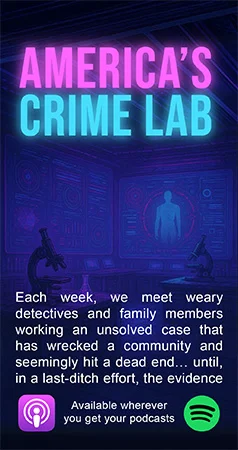Many moons ago, as a teenager in Washington state, I took a psychology class in high school. In his wisdom, our teacher had us do a couple of field trips to a couple mental hospitals- one a VA and one a state hospital. He wanted us to be able to understand that these were PEOPLE not just cases in books. We met with groups that specifically would be low danger to us. I will never forget those trips. These weren’t eccentric people, but severely ill and to be honest, very pitiful people. Every part of me objects when I think of their lives being made even more challenging by being subjected to the likes of LS. she doesn’t need access to any more vulnerable people.
So, while she may fit in fine in prison, prison is at least keeping her from hurting the innocent- removing her from society. I think that’s probably the only justice here on earth. Hopefully, those in prison who are redeemable or for minor offenses can be protected.
So I kind of agree.
JMO
In most State Mental Hospitals, there are different wards. I have taken students to hospitals on field trips - and yes, HS students in particular get to see the "nice" patients. There are other wards, which was my earlier point.
I've been to a few state hospitals where they still had the "old ward" for the most dangerous patients (those wards were no longer in use and featured strait jackets built into chairs that were almost like wooden thrones, which in turn were bolted to the walls). Last use of those went out a long time ago. Now, they have the same type of patient in a special treatment ward, where they can be restrained more humanely. Those patients do not typically get seen on field trips. I was in grad school and on a research grant before I ever saw those patients. Even then, the administrators limited access to them (too easily manipulating and too easily upset - getting them to be balance, on meds, restrictions, etc., is complex).
I don't think anyone should be harmed by someone else in a prison, a jail, or a state mental hospital. Even though people may be convicted, other prisoners should not be their justice. People on minor offenses (misdemeanors and in CO and CA, also people who are serving felony sentences of two years and under) do not go to prison. Within every prison where I've worked (and I haven't been in prisons as much as in jails and mental hospitals), there are degrees of confinement. There has to be that, because even with LSWP people, they need something to work for (a better situation in prison).
If Letecia behaves the way I think she's capable of behaving (keeping people awake at night, starting verbal conflicts, getting into physical altercations, lying, manipulating, possibly stealing from other prisoners), sure, the other prisoners will "take care of her." But the State has an obligation to protect her and give her medical care. She's a malingerer. She'll end up in the psych ward at the prison and it'll be up to the treating psychiatrist there to advocate for a different, more manageable location. Hospital wards in prisons are still there to provide benign care to prisoners, not to be permanently disrupted by Letecia Stauch, who will quickly learn how to get herself into that environment (surrounded by professionals and workers, mostly, instead of other prisoners). IME, such wards have very high rates of turnover in terms of LVN's and RN's (who end up stuck dealing with Letecia). If you read stories of prison manipulators and escapees, it often starts with that "pathway.'
Whereas in psychiatric hospitals with a ward for the dangerous, it will have special sleeping arrangements (most prison hospitals have more than one patient in a space, but not all of them do - if anyone from CO knows if there are maximum security hospital wards in CO prisons, I'd love to hear about it - otherwise, I'll try and find the answer myself). Social time (can be as short as one hour a day) can still involve restraints (sometimes, has to). Restraints are designed for long term use and for inability to use as weapons.
In the end, I don't care where she goes, but I want her to have a determined sentence. Which brings me to my understanding of CO law. My understanding is that to get Life Sentence Without Parole she must be found Guilty. Then they can send her to prison. Then, if prison can't handle her, she can go to Pueblo. And that is what I envision will eventually happen to her. She won't go straight to Pueblo because I think Grusing's testimony on Friday put another nail in the coffin - there was no irresistible impulse. She helped the State immensely with her storytelling and lying in that Friday testimony.
She tried to figure out a way and attempt to kill that poor little boy multiple times over a couple of days, and she was able to drive, direct clean-up, send HH to purchase things for clean-up, etc. She has never once claimed that "Gannon did something" that triggered an irresistible impulse. Her defense is about to claim that she has amnesia for some of that period (DID), but her own details of nearly every minute (with multiple stories in some of the time slots) has done her in.
IMO. She is capable of great harm to other people in the future.






